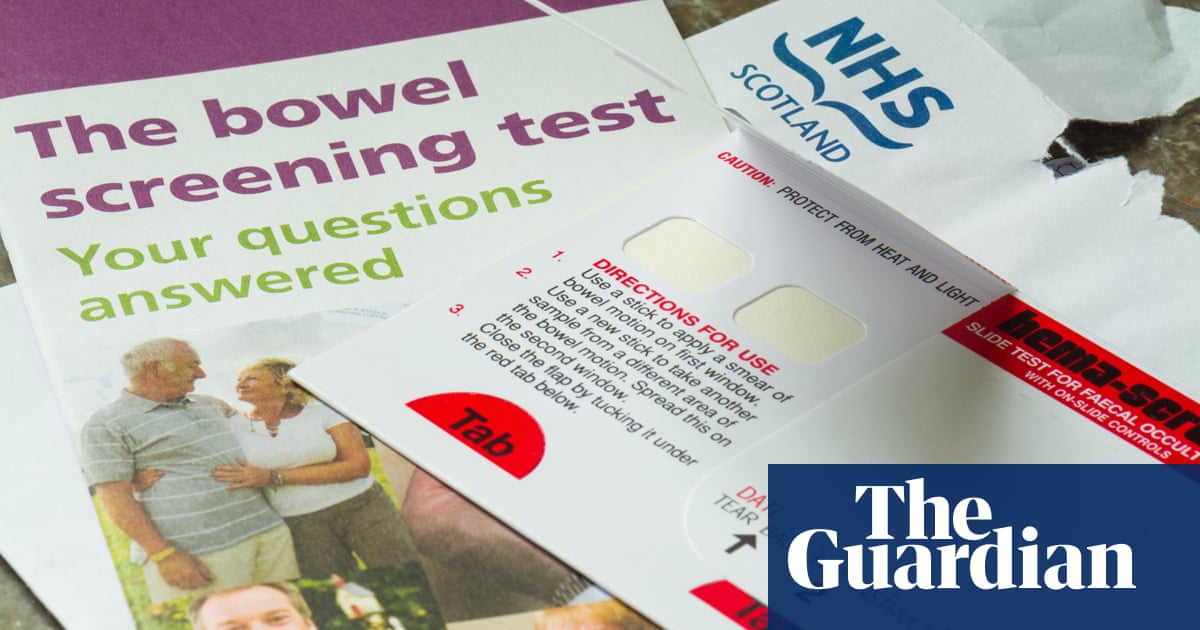
Researchers have identified a potential new targeted treatment for incurable bowel cancer.
The medication has shown promise in a clinical trial in slowing the regrowth of tumours among some patients with the condition.
The trial looked at whether a drug called adavosertib, taken as a daily pill, could delay tumour regrowth among patients with an aggressive sub-type of inoperable bowel cancer who have limited treatment options.
Researchers compared 44 patients who took adavosertib with 25 patients who did not. They found that the drug delayed tumour growth by about two months on average and had relatively few side effects.
The drug had more effect in the 31 patients with left-sided/rectal tumours, increasing overall survival – meaning patients lived longer.
The lead author, Dr Jenny Seligmann, of the University of Leeds, said: “These results show promising signs that adavosertib may be effective in delaying regrowth of bowel cancer in some patients and is well tolerated.
“The findings are particularly encouraging as the subset of patients involved represent a third of all bowel cancer patients and, while other patients have treatments developed specifically for their tumour types, this group currently has very limited treatment options.”
The scientists caution that larger trials are needed to establish whether the drug improves survival compared with standard treatment.
The drug was trialled among patients on a treatment break after chemotherapy.
However, the research suggested adavosertib could benefit patients with other types of bowel cancer or alongside standard treatments in other lines of therapy.
The subset of patients who took part in the trial had tumours with two common mutations, RAS and TP53. Scientists hypothesised these mutations would make the tumours more sensitive to the drug.
According to researchers, about a third of colorectal cancer patients have tumours with these two mutations.
In the UK more than 42,000 people are diagnosed with bowel cancer every year. It is the fourth-most common cancer in the UK and the second-biggest cancer killer.
The findings come from a large collaborative UK trial called Focus4 which aimed to investigate the best ways to help people with inoperable bowel cancer who have already received some chemotherapy.
Co-author Prof Louise Brown, from the Clinical Trials Unit at UCL and statistical lead for the Focus4 trial, said: “The results for the adavosertib arm of the trial are potentially important and represent a glimmer of hope for patients in this group.”
Adavosertib kills cancer cells by inhibiting a protein that helps to regulate the process of cell division in the tumour.
Side-effects included fatigue, diarrhoea, neutropenia (involving low levels of white blood cells called neutrophils) and nausea, but none occurred in more than 11% of patients.
A second study from a separate part of the Focus4 trial called Focus4-N, also published in the Journal of Clinical Oncology, looked at outcomes among patients who had a complete break from treatment after chemotherapy.
They were compared with outcomes among those who continued chemotherapy using a simpler tablet called capecitabine.
Researchers found that, among those who had a complete break, the cancer started to grow sooner than in those on continued maintenance therapy.
But that maintenance therapy did not lead to an increase in how long people lived, the study suggested.
The Focus4 trial is funded by the EME Programme – an MRC/NIHR partnership – and Cancer Research UK and is run from the MRC Clinical Trials Unit at UCL in collaboration with Oxford University, Leeds University and Cardiff University.












